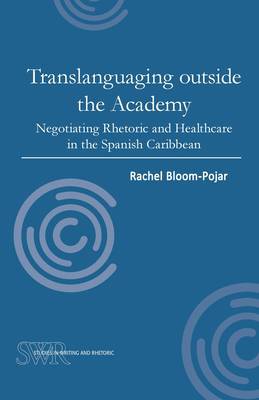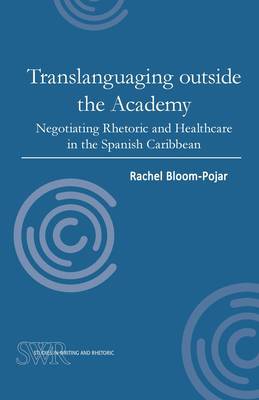
- Afhalen na 1 uur in een winkel met voorraad
- Gratis thuislevering in België vanaf € 30
- Ruim aanbod met 7 miljoen producten
- Afhalen na 1 uur in een winkel met voorraad
- Gratis thuislevering in België vanaf € 30
- Ruim aanbod met 7 miljoen producten
Translanguaging Outside the Academy
Negotiating Rhetoric and Healthcare in the Spanish Caribbean
Rachel Bloom-PojarOmschrijving
Moving outside of classroom-based and English-dominant contexts, Rachel Bloom-Pojar draws from an ethnographic study of a summer health program in the Dominican Republic to examine what exactly rhetorical translanguaging might look like, arguing for a rhetorical approach that accounts for stigma, race, and institutional constraints.
Within a context where the variety of Spanish spoken by the local community is stigmatized, Bloom-Pojar examines how raciolinguistic ideologies inform notions of stigma in this region of the Dominican Republic, and then demonstrates how participants and patients in this study "flip the script" to view "professional" or formal Spanish as language in need of translation, privileging patients' discourses of Spanish and health. This framework for the rhetoric of translanguaging:
- Complicates language ideologies to challenge linguistic inequality
- Cultivates translation spaces across modes, languages, and discourses
- Draws from collective resources through relationship building
- Critically reinvents discourse between institutions and communities
Specificaties
Betrokkenen
- Auteur(s):
- Uitgeverij:
Inhoud
- Aantal bladzijden:
- 157
- Taal:
- Engels
- Reeks:
Eigenschappen
- Productcode (EAN):
- 9780814139929
- Verschijningsdatum:
- 15/03/2018
- Uitvoering:
- Paperback
- Formaat:
- Trade paperback (VS)
- Afmetingen:
- 140 mm x 216 mm
- Gewicht:
- 235 g

Alleen bij Standaard Boekhandel
Beoordelingen
We publiceren alleen reviews die voldoen aan de voorwaarden voor reviews. Bekijk onze voorwaarden voor reviews.











